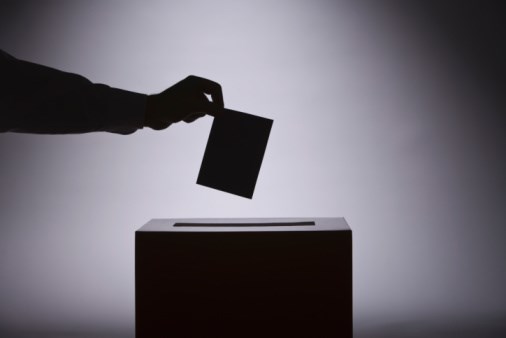 The government is giving away $1 million to voting-system partisans.
The government is giving away $1 million to voting-system partisans.
Chief electoral officer Anton Boegman has the authority to divide that amount evenly between two camps that will campaign in the fall referendum on whether to change B.C.’s elections to a proportional representation.
But some on the No side are looking the gift horse in the mouth. They’re already intensely suspicious of the referendum, the motivations behind it and the questions themselves. Now the timing is fuelling some mistrust.
Forty pages of rules for the upcoming campaign were approved by cabinet only last Friday. The deadline to apply for the money is July 6. That’s 10 working days to meet the requirements. A few public groups have already formed and any others that aren’t fully operational by now are probably too late.
Requirements include being a registered society, ensuring two-thirds of your membership is from B.C., and having no current local or provincial politicians or candidates listed as directors.
The application for funding is a six-page form with several detailed questions. Applicants have to outline their primary mandate, include the constitution and bylaws, and describe the history and structure of the organization.
They also must describe how members are involved in the organization, and applicants are invited to include the manner and frequency of internal communications, the geographic distribution of members and the specific activities they undertake.
The money doesn’t come easily:
• “List all relevant public information campaign experience by the organization, its directors and members.”
• “Describe the knowledge and expertise your organization possesses with respect to the Westminster model of parliamentary government, the current electoral system and the proportional representation voting systems on the ballot.”
B.C. Liberal MLA Michael Lee said the rules came late and the funding deadline is early.
“You’d think the official groups would be selected prior to the official start of the campaign,” Lee said.
The campaign starts July 1, but the official proponents and opponents can’t be selected until after the funding application deadline on July 6. And it will take some time to process those applications. Bill Tieleman, who is advocating for the No side, said the campaign could run for much of the first month with no official campaign groups selected.
“This is more complex and confusing that proportional representation itself,” said Tieleman.
The groups now active are still unofficial at this point. Yes PRBC is an alliance across several party lines of people in favour of changing the system. No Pro Rep is a society formed of people, including Tieleman, also from different parties, who want the referendum question rejected. There’s also a group (Fair Referendum) that objects to the how the referendum is being conducted.
The objections about the timing are the latest in a series of complaints from advocates of the status quo that the government’s approach is rigged in favor of getting the result both the NDP and Green parties want — a change to a proportional-representation model. That’s written into the confidence agreement that forms the basis of the NDP’s hold on power.
There are unlikely to be any complaints from the Yes side. It got a lot of what it asked for in a submission it made to the governments consultation process last winter. It recommended a two-question ballot with the second one having three options. That’s the format Attorney General David Eby settled on.
Other recommendations fared less well. It suggested the choices be based on models from other jurisdictions, including the single transferable vote. But Eby rejected the STV option and some of the choices were invented by the government and aren’t in use anywhere else.
By contrast, the No Pro Rep submission to government concentrated mostly on the unfair bias in the process in favour of change, and on Eby’s role in it. He declared himself a neutral arbiter, but campaigned previously in favour of proportional representation.
The No group recommended one question be put to voters, with no two-part ballots or multiple choices. It also wanted maps of all new ridings and a 60 per cent approval threshold. The maps won’t be ready in time for the voting process in October-November, and approval will be 50 per cent plus one, counted provincewide.



